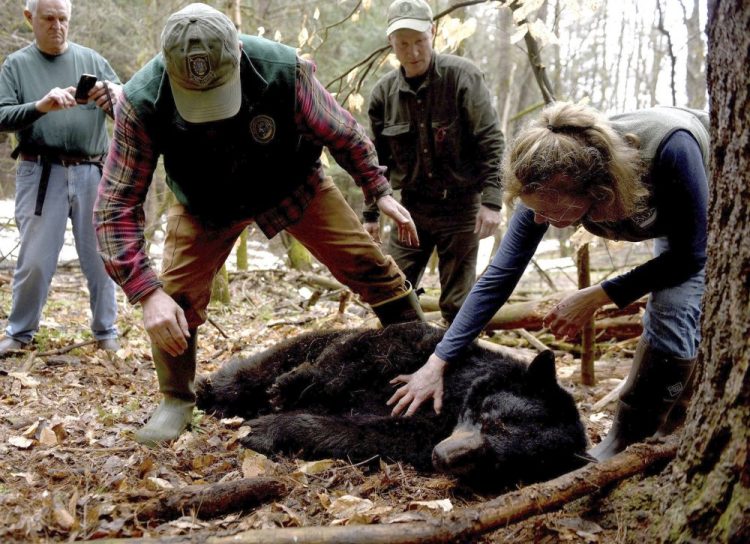WEST LEBANON, N.H. — One of three black bear cubs orphaned by the recent death of their famous mother was hit and killed by a bus in New Hampshire, authorities said.
The 30-pound cub was struck Monday afternoon after it ran onto Route 10, in West Lebanon, said Michael Hinsley, deputy fire chief in nearby Hanover.
The cub was similar to an 8-month-old cub that was rescued Aug. 31 and determined to the offspring of the mother, known as Mink.
Ben Kilham, who runs a bear rehabilitation center in Lyme and took in the rescued cub, buried its remains. He told the Valley News, “It was one of Mink’s.”
Andrew Timmins, New Hampshire Fish and Game black bear project leader, agreed Tuesday, saying the cub was hit very close to where the first one was successfully captured.
The status of the third cub isn’t known, although authorities are investigating a report that a cub was hit by a vehicle last week around the same location.
“Bears can absorb a hard hit and survive, however, that obviously applies less to a small bear,” Timmins said. “Because we don’t know how hard the cub was hit last week, we lack the ability to predict its survival.”
Hinsley said he would continue to monitor the area and work with residents and landowners to find the cub.
Officials had been searching for the cubs since Mink was found dead in late August. She gained fame when Gov. Chris Sununu spared her life in 2017 and when she traveled thousands of miles in a looping route through Vermont and New Hampshire to return to her home territory after being relocated to near the Canadian border.
Mink had been set to be euthanized, along with three of her earlier offspring, in 2017 after repeated problems with them feeding from trash and bird feeders culminated in two bears entering a home in Hanover.
Sununu instead ordered them to be moved to far northern New Hampshire. One of the yearlings was killed within weeks by a hunter in Quebec.
Mink wasn’t captured then because she left town to mate and later returned with four cubs in 2018. She was fitted with a tracking collar in June of that year and moved about 120 miles north, but returned to the Hanover area in 2019.
Send questions/comments to the editors.



Comments are no longer available on this story